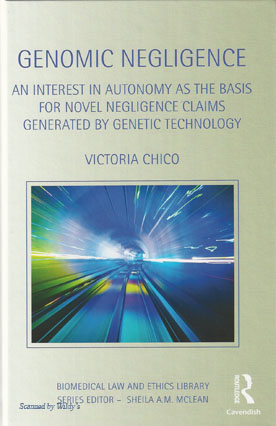
Advances in human genetics are set to revolutionise the way we think about our health. The increasing availability of genetic tests will lead to a situation where we know more about others and they know more about us.
Furthermore, genetic knowledge enables us to predict and modify our genetic future and the genetic future of subsequent generations.
Within the context of such changing social circumstances, this book identifies novel grievances that might be generated by modern human genetic technologies. In the absence of dedicated regulation, such novel grievances would be articulated via the tort system.
The book considers how the English tort regime might respond to the perceived wrongs identified as potentially arising from the application of new genetic technologies in health care settings. Following on from this, Genomic Torts considers whether a more claimant-orientated reaction to the perceived wrongs might arise if the English tort system were explicitly imbued with a recognition of an interest in personal autonomy.